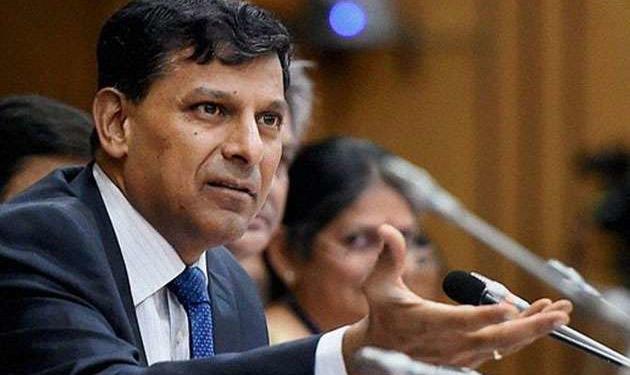Economic policies need dispassionate analysis from academicians and intellectuals. A policy analyst must shed his/her ideological bias while reviewing a public policy. The criticism of any policy for the sake of maintaining an ideological position discredits the intellectual rigor of any policy analyst and the former governor of RBI, Raghuram Rajan seems to be doing exactly the same after he was relieved of his post. Raghuram Rajan returned to academia as the professor of finance at University of Chicago Booth School of Business and now he seems to have cleared his ideological position rather than being a dispassionate policy analyst.
A few days back while describing GST as ‘hard blow’ and a ‘shock’ to economy in an address to audience at the University of California at Berkeley, he said,“What happened in 2017 is that even as the world picked up, India went down. That reflects the fact that these blows (demonetization and GST) have really, really been hard blows… Because of these headwinds, we have been held back…”. He further added, “The two successive shocks of demonetization and GST had a serious impact on growth in India. Growth has fallen off interestingly at a time when growth in the global economy has been peaking up…”he added.
Raghuram Rajan is among the most respected economists and public intellectuals around the globe and comparing GST with demonetisation does not suit his expertise. While demonetisation has its critics and admirers, there is consensus among policy makers and economists that GST was a monumental economic reform. Criticism of GST from an economist of Rajan’s stature is definitely more of ideological bias towards a particular government rather than a dispassionate analysis of the issue.
Finance minister, Arun Jaitley took Rajan’s criticism of GST head-on, “You will always have critics and cynics who will come up and say it (GST) slowed down India’s growth,” he said at 100th anniversary celebration of state-run Union Bank of India. On Rajan’s statement about slowdown of growth due to GST implementation, Jaitley said, “GST slowed down growth for two quarters, but people overlook how growth rose after that.”
GST was a much needed economic reform for a country as huge and diverse as India. The unification of domestic markets through a homogeneous tax rate across the country was tried by successive governments in last three decades with little or no success. Modi government has been able to bring all the stakeholders on board and settle their issues on the implementation of GST. The historic reform was implemented on July 1, 2017, with the economic growth slowing down a bit in the next two quarters. Every policymaker agreed that slowdown in growth for two quarters could be digested for a reform which is expected to increase the GDP by 1-2 percent in the upcoming fiscal years.
The one-sided praise or criticism of any policy, without taking a holistic view of it, is not justice to the policy. Rajan did the same in cases of demonetisation and GST. He considered both the policies responsible for economic slowdown. However, he did not acknowledge that demonetisation increased tax compliance and accelerated the digitalisation of economy as well. On the GST front, he did not mention for a single time that the indirect tax reform was much needed for the country and will be helpful in the acceleration of economic growth in years to come.
The unfair criticism by Rajan makes his intentions clear. His bias against a particular government is apparent. He should have rather acted like a dispassionate policy analyst than a prejudiced critic of policies.


























